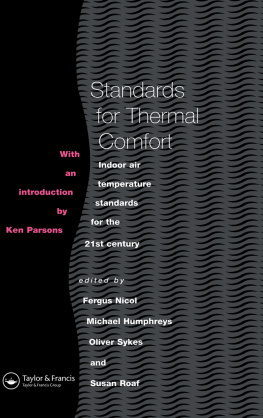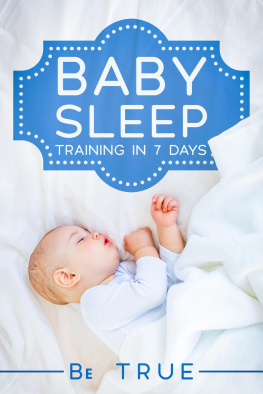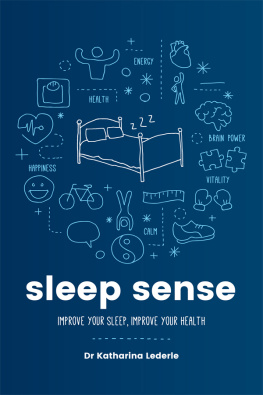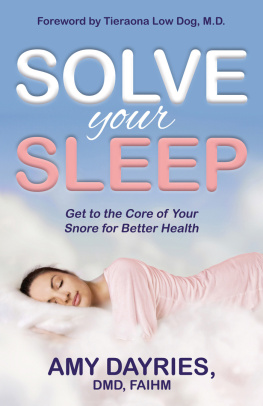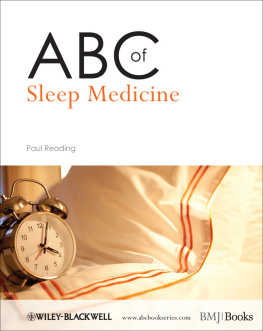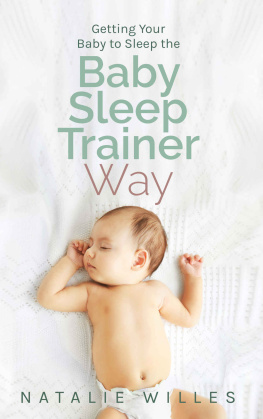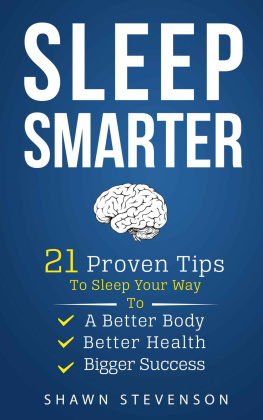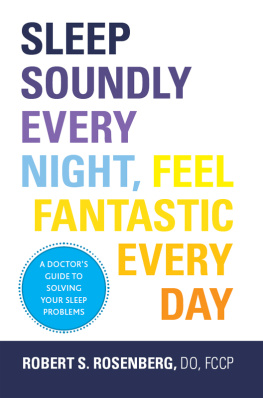Sleep is the condition of the body and mind where the nervous system is relatively inactive, the muscles are relaxed and the consciousness is suspended. It is also considered as a state of rest. Sleep is necessary for our survival. Its the time when your mind processes the day and your body recovers. During sleep, your body detoxifies by eliminating free radicals. These free radicals can cause illness and cancer, so detoxification is essential. Therefor it is imperative that we optimize our sleep so we get the most out of our 40 winks.
Sleep effects physical performance. Weve all had those days at work where weve pouring the cups of coffee. A lack of sleep leaves us feeling lethargic, unmotivated and as a result were unproductive. Also, our mentally clarity and focus is affected.
Sleep and weight loss While youre in restful sleep, your body produces growth hormone. This hormone helps the body recover and can even help with your fat burning goals! A study undertaken at the University of Chicago (go Maroons!) compared the weight loss of participant sleeping 8 hours per night to those sleeping only 5 & a half hours a night. Both parties ate the exact number of calories (1,450) per day. The interesting thing was that while both groups lost weight, more than half of the weight lost was fat for those sleeping 8 hours a night, compared to only a quarter of the weight loss being fat for the sleep deprived participants.
Chapter 2 Exercise
Exercise has been one of the most effective ways to maintain a healthy lifestyle because of the numerous benefits it gives not just physically, but also emotionally, psychologically and spiritually. There are different types of exercise, ranging from the extreme ones such rigorous sports like boxing, tennis, football, running, basketball, etc. where almost all parts of the body is required to move at a very fast pace. There are also types of exercise that are less intense such as walking, yoga, pilates, etc, where the pacing is a lot slower and the heartbeat does not rapidly increase.
Exercise has several benefits for the body and some of those are the following:
- Burns calories which aids weight loss
- Decreases chances of cardiovascular disease
- Good for the respiratory system
- Aids digestion
- Helps for leaner and stronger muscles
- And many others
An important thing to remember is not to over-exercise and to balance your week. It is not recommended to exercise everyday because this should be a lifestyle change and you should appreciate small wins. If you go from never exercising to having a goal of exercising everyday, then not only is this a shock to the system but you are most likely not going to stick to this 2-3 weeks down the line. This can cause you to feel defeated, like youve let yourself down and unmotivated. Also, exercising everyday can cause inflammation, sore joints and exhaustion.
Set small, achievable goals that you can build up overtime. This way you will build up a momentum and feel good about yourself. This is about balance and having a healthy life. Listen to your body, if you are too sore to work out today then take the day off, spend time with family and be present.
Although exercise can really help people who are having a different time to sleep because it will exhaust all the energy, it is not recommended to exercise 2 hours before bedtime. This is because the adrenaline/noradenaline is produced while exercising. Your body will be stimulated, your heart rate and temperature elevated. Weve all been in this state and its a great high, but not the relaxed calm state required for restful sleep. Studies have shown that its best to avoid exercise 2 hours before bed for optimal sleep.
Chapter 3 Have A Caffeine Curfew
Caffeine is famous for making you stay awake for hours. Coffee, soft drinks, tea and many others contain high doses of caffeine that will enable you to become hyperactive throughout the day. Caffeine is a nervous system stimulant that is good for focus and energy. This is the primary reason why coffee is best drank in the morning especially on slow mornings, because it boosts your body, giving you energy to survive those tedious, monotonous Mondays. The downside of it is that it destroys restful sleep if indulged too late in the day. Caffeines half-life is 5-6 hours; this is the number of hours it takes for half an ingested dose of caffeine to wear off. This means you need a caffeine curfew; you will not enter restful, deep sleep if you have a stimulant in your system.
I recommend that you have a caffeine curfew of time of 2pm.
If you are a coffee-lover, there are other options for you such as drinking decaffeinated coffee because it has the same taste as your favorite coffee, but will also let you have a good night sleep even if indulged at night. If you are a coffee lover, I recommend trying bulletproof coffee. It provides a great stable energy, tastes delicious and there is little to no caffeine crash!
Chapter 4 Get To Bed At The Right Time
Going to sleep at the right time and sticking to schedule is important. It helps synchronize your body to the natural rhythm of night and day; youll begin to wake up refreshed at the same time of day rather than continually beating on the snooze button. The reason why people have jetlags is because their normal sleeping pattern is disrupted, which results to difficulty in sleeping. Having patterns does not necessarily mean sleeping at exactly the same time, but scheduling your day so that you go to bed at roughly the same time each night. I recommend that you go to bed each night no later than 11pm.
To prevent oversleeping or sleeping late, it is necessary to set schedules and more importantly, to follow them. This goes for waking up too, you should aim to wake up at the same time every day. This will help your body find a natural rhythm and, after time, youll wake up natural at this time, feeling rested. Sleeping in on the weekends is tempting but you should try to avoid it so not to disrupt your bodys new found rhythm.



